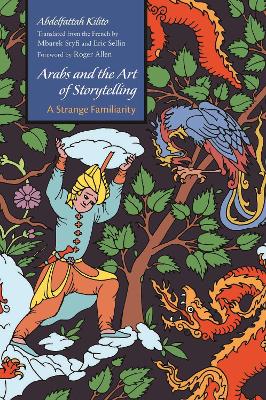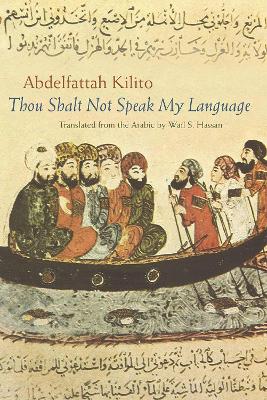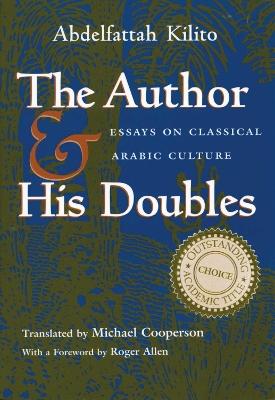Middle East Literature in Translation
3 total works
In Arabs and the Art of Storytelling, the eminent Moroccan literary historian and critic Kilito revisits and reassesses, in a modern critical light, many traditional narratives of the Arab world. He brings to such celebrated texts as A Thousand and One Nights, Kalila and Dimna, and Kitab al-Bukhala' refreshing and iconoclastic insight, giving new life to classic stories that are often treated as fossilized and untouchable cultural treasures.
For Arab scholars and readers, poetry has for centuries taken precedence, overshadowing narrative as a significant literary genre. Here, Kilito demonstrates the key role narrative has played in the development of Arab belles lettres and moral philosophy. His urbane style has earned him a devoted following among specialists and general readers alike, making this translation aninvaluable contribution to an English-speaking audience.
For Arab scholars and readers, poetry has for centuries taken precedence, overshadowing narrative as a significant literary genre. Here, Kilito demonstrates the key role narrative has played in the development of Arab belles lettres and moral philosophy. His urbane style has earned him a devoted following among specialists and general readers alike, making this translation aninvaluable contribution to an English-speaking audience.
It has been said that the difference between and language and a dialect is that a language is a dialect with an army. Both the act of translation and bilingualism are steeped in a tension between surrender and conquest, yielding conscious and unconscious effects on language. First published in 2002, Abdelfattah Kilito's Thou Shall Not Speak My Language explores this tension in his address of the dynamics of literary influence and canon formation within the Arabic literary tradition. As one of the Arab world's most original and provocative literary critics, Kilito challenges the reader to reexamine contemporary notions of translation, bilingualism, postcoloniality, and the discipline of comparative literature. Wail S. Hassan's superb translation makes Thou Shalt Not Speak My Language available to an English audience for the first time, capturing the charm and elegance of the original in a chaste and seemingly effortless style.
At the center of Kilito's work, is his insistence on the ethics of translation. He explores the effects of translation on the genres of poetry, narrative prose, and philosophy. Kilito highlights the problem of cultural translation as an interpretive process, and as an essential element of comparative literary studies. In close readings of al-Jahiz, Ibn Rushd, al-Saffar, and al-Shidyaq, among others, he traces the shifts in attitude toward language and translation from the centuries of Arab cultural ascendancy to the contemporary period, interrogating along the way how the dynamics of power mediate literary encounters across cultural, linguistic, and political lines.
At the center of Kilito's work, is his insistence on the ethics of translation. He explores the effects of translation on the genres of poetry, narrative prose, and philosophy. Kilito highlights the problem of cultural translation as an interpretive process, and as an essential element of comparative literary studies. In close readings of al-Jahiz, Ibn Rushd, al-Saffar, and al-Shidyaq, among others, he traces the shifts in attitude toward language and translation from the centuries of Arab cultural ascendancy to the contemporary period, interrogating along the way how the dynamics of power mediate literary encounters across cultural, linguistic, and political lines.
A splendidly translated exploration of major themes in classical Arabic literature by the most inventive and provocative critic of Arabic literature in the Middle East today. In this exceptional volume, Abedlfattah Kilito argues that genre - not authorship - is at the heart of classic Arabic literature. Using simple yet lyrical language, he examines love poetry and panegyric, the Prophet's Hadith and the literary anecdote, as well as such recurring themes as memorization, plagiarism and forgery, and dream visions of the dead. Ultimately, he evokes these as an allegory for post-colonial Arab North Africa. An elegant translation faithfully captures the author's poetic finesse and makes the book easily accessible to English-speaking readers. Warmly received by critics and anthropologists, this volume is a must for scholars, students, and devotees of Arab culture.


